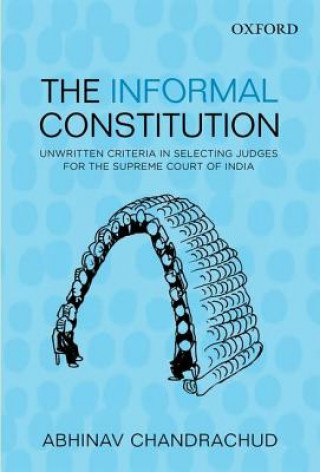
Livrare
Consilier de cumpărături





Nu se pretează? Nu contează! La noi puteți returna bunurile în 30 de zile
 Voucher cadou
orice valoare
Voucher cadou
orice valoare
Cu un voucher cadou nu veți da greș. În schimbul voucherului, destinatarul își poate alege orice din oferta noastră.
Informal Constitution
 engleză
engleză
 110 b
110 b
30 de zile pentru retur bunuri
Ar putea de asemenea, să te intereseze


Between 1950 and 2009, 189 judges (including 37 Chief Justices) served on the Supreme Court of India, dubbed one of the world's most powerful courts. Not enough is known of who these judges were and the criteria that were used to select them for the court, especially of those who served on the court in relatively recent times. Broadly speaking, the Indian constitution formally provides that three types of individuals can be appointed to the Supreme Court: (1) High Court judges of five years' standing, (2) High Court lawyers of ten years' standing, or (3) "distinguished jurists", i.e. law professors or others. However, this says very little, perhaps nothing, about the kind of candidates that are selected for appointment to the court. Informal norms have evolved over a period of sixty years which co-exist alongside formal constitutional rules-norms that govern who will be considered fit and eligible for appointment to the Supreme Court of India. In this study, the author has aimed to quantitatively and qualitatively demonstrate that three informal eligibility criteria in particular are used to select judges for the Supreme Court of India, i.e. criteria that have not been formally specified in any constitutional document: (1) a judge should be of the age of 55 or above at the time he is considered for appointment to the Supreme Court, (2) he should be a senior High Court judge or, especially over the last twenty years, a High Court Chief Justice, (3) judges should reflect the geographic (and demographic) diversity of India, i. e. judges are selected for the Supreme Court by taking into account the state or region they belong to, and whether they belong to non-traditional backgrounds, i.e. in terms of religion, caste, or gender.
Informații despre carte
 engleză
engleză
Categorii




 Cum să cumpăr
Cum să cumpăr


















